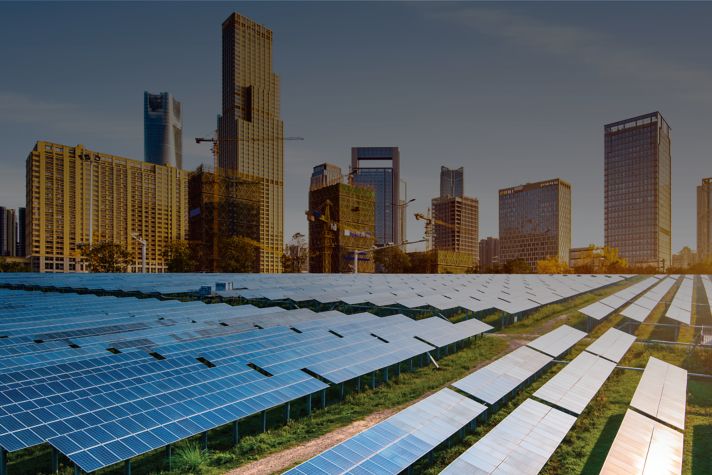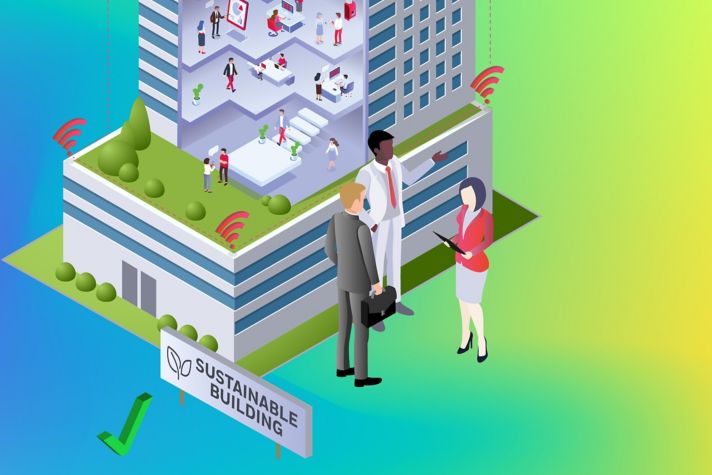Getting Serious About Sustainability: A Chief Sustainability Officer Interview
One of the first official definitions of sustainability came from the United Nations in 1987. Sustainability is “…meeting the needs of the present without compromising the ability of future generations to meet their own needs.” This sounds like a simple, even obvious, goal for organizations and industries to pursue. But this objective wasn’t always prioritized.
For centuries now, organizations have “played now and paid later” when it came to running their operations. Or rather, they have “fueled now” and let future generations deal with the impact on the environment. Fortunately, that trend is turning around. More companies are prioritizing sustainability, and more countries are putting legislation in place to make sure they do.
This can be particularly challenging for industrial organizations like mining, oil and gas and many others. How do organizations in this sector balance the very-crucial-business-need to be profitable against the very-cultural-need to be sustainable? One way is to make room for it on the org chart, with many organizations appointing a Chief Sustainability Officer.
And that’s just what Honeywell did in 2004. (Talk about early adoption.) For almost 20 years, Evan Van Hook, Honeywell's Chief Sustainability Officer from 2004 to 2023, helped our company – and our customers – navigate that fine balance between profitability and sustainability. Evan’s efforts were a real game-changer for Honeywell and the industry at large, landing him on the “ESG50” list by Constellation Research. This is “an elite list of the top environmental, social, and governance executives championing pragmatic ESG strategies.”
Considering Honeywell’s progress with our own sustainability efforts, it’s easy to see why Evan is so respected. Honeywell’s greenhouse gas emissions have been reduced by 90% on a normalized basis and the entire organization’s energy efficiency has been improved by an impressive 70%.
So what can other organizations learn from Honeywell’s sustainability efforts and successes? Quite a bit, hopes Van Hook.
Assess First, Report Later
A common mistake he sees many organizations make when it comes to working on their sustainability goals is being overly focused on the reporting and protocols. The first and most important step should instead be getting a crystal clear lay of the land. In other words, taking a good, hard look at the organization’s current environmental impact.
“You must first find out where you are having your most negative environmental impacts or where you have the most choices that you can make. Start with your current ‘makeup’ and then go from there,” advises Van Hook. “Believe me, you'll be able to fit into those protocols down the line, but you really have to make the investment of time into first understanding your current state. I see a lot of organizations just chasing the protocols as opposed to really saying, you know, this is what we have and what we can do about it.”
A Grave Global Security Threat
Focusing on sustainability isn’t just a culturally important goal. It’s a global security issue as well. In fact, says Van Hook, “The Department of Defense of the United States and many other countries consider climate change to be one of the top security challenges of our day. What do they anticipate that climate change will bring?”
It isn’t hard to figure out, once we start to connect the dots. All aspects of life are impacted by the atmosphere. If climate change starts to create more floods or more droughts, mass migration (and all the conflict that entails) is sure to follow. Then would come the food shortages. With the global refugee crisis already at an emergency level, adding in climate challenges could really make the difference between dire and dangerous. Van Hook calls these displaced, desperate people “climate refugees.”
Other environmental challenges that could greatly impact day to day life are things like the acidification of the oceans. This trend jeopardizes the viability of many fish stocks, which are a main food source for several different populations. Historically, where food shortages go, conflict and chaos, and even war, can follow. This is why sustainability is more than a noble pursuit, it’s absolutely core to our global civilization’s survival.
To learn more about sustainability solutions for your enterprise download our whitepaper “Why Sustainability Should be Your Competitive Edge.”




